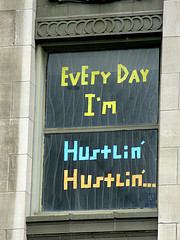Bank Of America On Trial Over Countrywide’s “Hustle”
The Justice Dept. filed suit against BofA in Oct. 2012, claiming that “Countrywide eliminated every significant checkpoint on loan quality and compensated employees based solely on the volume of loans it originated, leading to rampant instances of fraud.”
This case specifically deals with the toilet-paper loans that the government says were misrepresented as pristine before being sold off to Fannie and Freddie.
In the original complaint, the DOJ had alleged violations of the False Claims Act — stating that, because Fannie and Freddie are now under federal conservatorship, Countrywide made fraudulent claims for payment to government officials. However, the judge threw out those charges in May while allowing the government’s suit under the Financial Institutions Reform, Recovery and Enforcement Act (FIRREA), which deals with the making of false statements to a federally insured financial institution, to continue.
This was a huge hit to the DOJ case, as the False Claims Act would have allowed the feds to seek triple the amount of damages. So even though the suit was allowed to move forward as a FIRREA case, the DOJ is much more limited in how much money it can recoup from BofA.
Bank of America has both defended the Hustle as a legitimate attempt to streamline the underwriting process and attempted to distance itself from the program by saying it ended before Countrywide was acquired by BofA. The bank made a last-ditch effort to get the case dismissed in August, but the judge said there were “genuine factual disputes” that deserved to be heard at trial.
“The government’s theory in part has always been that the defendants, through their own internal processes, covered up how defective the loans were and made them appear – even for the purposes of their ultimate internal figures, let alone what they represented to others – less defective than they were,” the judge said about his decision to give the green light to the trial. “That may be right, that may be wrong.”
The trial begins today in a federal court in Manhattan and is expected to last for about a month.
Bharara Takes Bank of America to Court Over ‘The Hustle’ [WSJ MoneyBeat]
Want more consumer news? Visit our parent organization, Consumer Reports, for the latest on scams, recalls, and other consumer issues.


